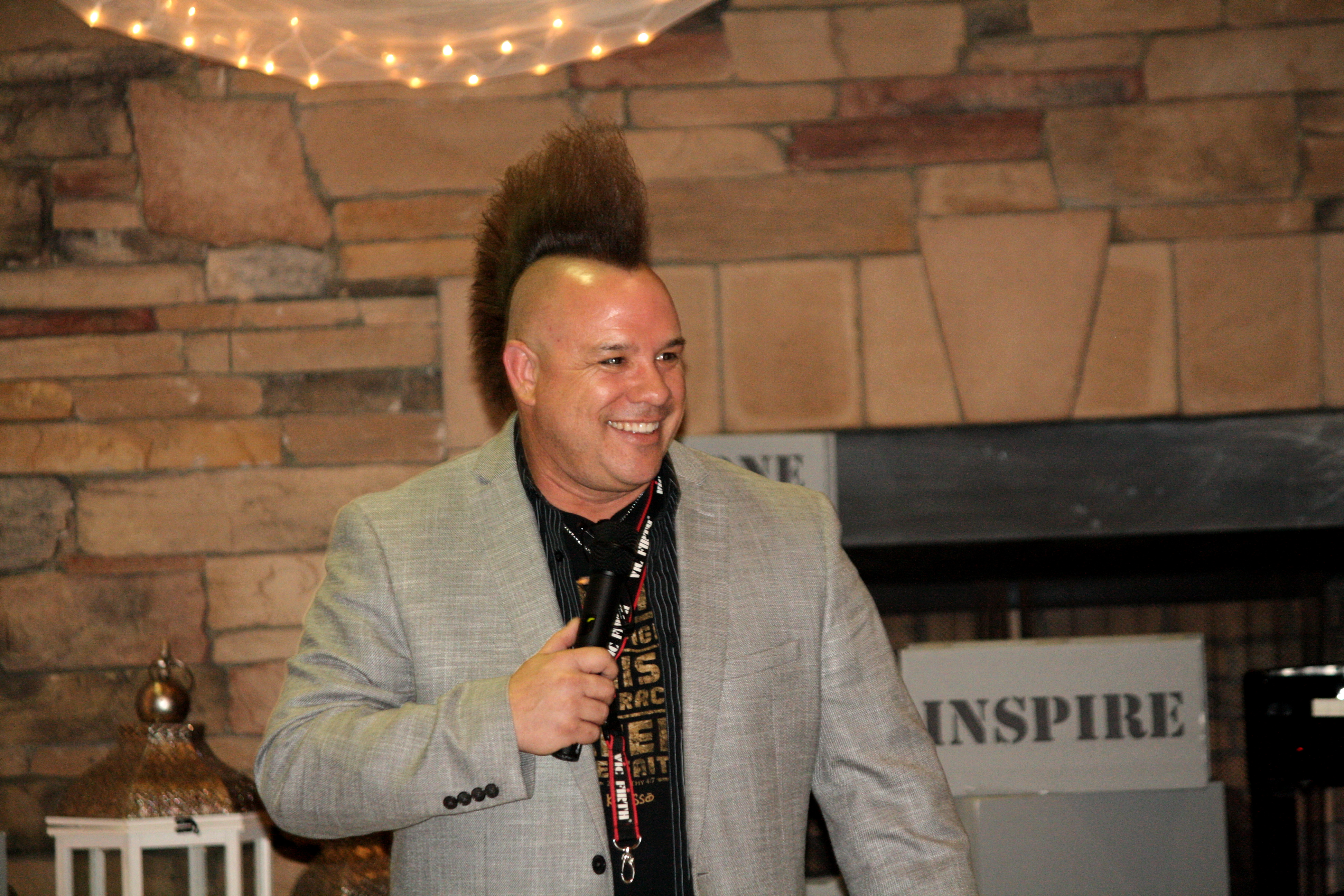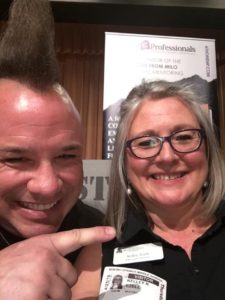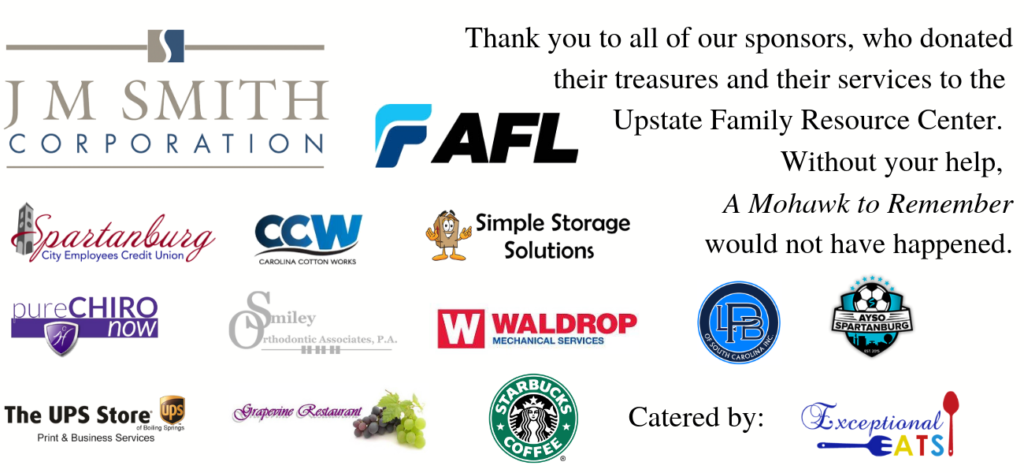
(Boiling Springs, S.C.) Mental health and resiliency was discussed in front of over 1,000 children at a Spartanburg County school April 25th, featuring guest speaker Christopher Milo. He later addressed parents, educators, and other community members at The Lodge at Lake Bowen Commons at an event benefiting the Upstate Family Resource’s fundraiser.
The Upstate Family Resource Center (UFRC) held A Mohawk to Remember to talk about Milo’s 13 Messages: Practical Solutions for Everyday Concerns. We wanted to start a discussion on ways to build resiliency in our families and community by using these character traits from the book of Psalms: be positive, be genuine, trust, be creative, love one another, accept, use your talents, work together, listen, communicate, inspire, coach, and be curious.

Milo’s 13 Messages speak directly to the five things the UFRC believes families need to thrive: social and emotional competence, the ability to manage and control emotions and behaviors; concrete support, the ability to provide basic needs like food, clothing, housing, transportation, and access to health care; social connections, the ability to connect and interact with others; knowledge or parenting and child development, the ability and willingness to learn how to parent well and support your child’s development; and resilience, the ability to have healthy coping skills for the stresses you may encounter as a parent or in crisis.
When I asked a few staff members how they believe the UFRC enacts these concepts, they said some very interesting things about the programs and the people who work there. For example, social and emotional competence is promoted in the UFRC’s Family Solutions Program.
“With the Family Solutions Program, there is a session on Anger Control. Students learn how to identify their own triggers and work on strategies to manage their anger as well as to more effectively communicate and work on conflict resolution,” said Olive Hayes, the UFRC’s Family Development Coordinator.
Other programs such as the Positive Parenting Program (Triple P) and the CARE (Adolescent Family Life) work with families to help them self-manage and control their emotions and behaviors.
The UFRC works hard to provide concrete support to their clients. According to the Executive Director Kelley Ezell, “Harvest Family Ministries and PASOs both help families in times of crisis by intervening to provide basic needs and directing families as they build a plan to move into the future.”
Social connections are opportunities provided by all programs, giving families chances “to learn and grow in a group setting with families from across our community. Peer to peer learning . . . provides opportunities to share failures and successes along the way,” according to Kelley. Not only is this ability to connect offered through the Triple P and Family Solutions Programs, but they are offered through everyday interactions with the staff at the UFRC.
“This happens every day. We all meet with clients at one time or another. Everyone wants to be comfortable to speak with, so that clients will want to talk to us,” said Jessica on the relationships between UFRC faculty and clients. When speaking on client-to-client relationships, she added, “Clients often gain lasting friendships through GED, ESOL, Family Solutions Program and Triple P classes.”
This unique opportunity to share experiences and make friendships at the UFRC is part of how the staff strive to create a thriving community.
Knowledge or parenting and child development is supported by classes offered through the Family Development and PASOs programs. Family Solutions, Triple P, and CARE provide ways for parents to sharpen their parentings skills while also providing insights into how they may help with their child’s development and schooling.
“We teach basic child development to our adolescent mothers. We go over it some in the Family Solutions Program when we discuss that young brains are still developing and are not always capable of as much self-control as we would like and that they are more likely to make risky decisions,” said Olive Hayes.
The last construct, resilience, is built through all programs as they “educate, engage and support families with the purpose of providing the skills necessary to help them work through current challenges and prepare for future opportunities,” as Kelley Ezell said.
Once again, the CARE, Family Solutions and Triple P programs work towards resilience. “We are planting seeds and trying to instill confidence in our clients to help foster positive growth and development . . .” said Olive Hayes.
The aim of A Mohawk to Remember was to spread awareness and start a conversation on how to help families fight for positive mental health. Milo came from Cleveland, Ohio to open this conversation, so that we may see what resources are needed and how we at the UFRC can increase our ability to provide those resources. As of now we refer families to therapists, but we are striving to do much more to increase accessible mental health services for our community.
Please message the UFRC at www.upstatefrc.org about any needs that are not being met locally. We strive to understand how we can expand our resources to better help you, because we want families to thrive. That is our mission, our vision, and our future.
“I need help. I need resources. I don’t have an Upstate Family Resource Center in Cleveland, Ohio. You do, let’s maximize it,” said Christopher Milo
